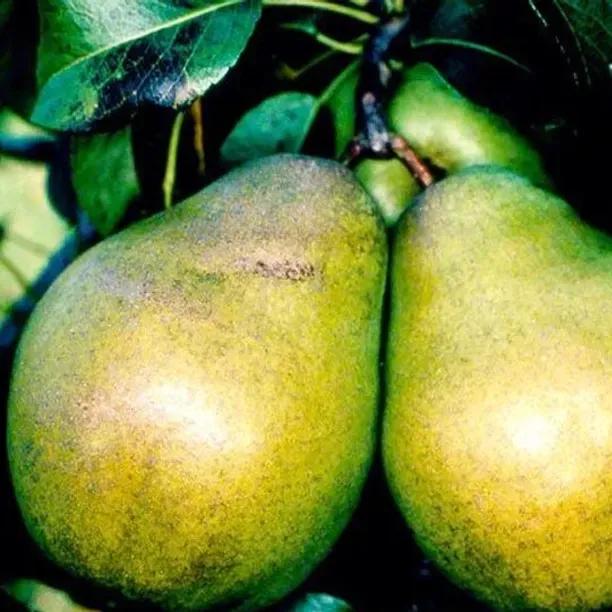Glou Morceau Pear Trees
The details
- Eating.
- Sweet, Juicy, Melting.
- Pollination Group: B
- Crops in October
- Spur bearer.
Description
Pyrus Glou Morceau - Late Season Dessert Pear
Description of Glou Morceau Trees & Fruit:
We recommend this tasty, late cropping eating pear as a pollination partner for most of the other pear trees that we sell. It has masses of flowers that last a little longer than average, which looks good in your garden as well as servicing the other pears in your collection. It is a classic eating pear, with really soft juicy flesh, a strong flavour and a touch of gritty texture in the centre.
This is not a good pear tree for you if you live in the North or Scotland, it needs a Southern summer to ripen properly.
Browse our range of pear trees or see the full variety of fruit trees.
Characteristics of Glou Morceau Trees:
- Eating
- Self Sterile
- Pollination Group B
- Spur Bearer: suitable for cordons & training on wires.
- Harvest: October
- Store & ripen in a cool, dry place: Until January. Best eaten after 4 weeks of ripening off the branch.
Pollination Partners for Glou Morceau:
To make fruit, all pear trees need to be pollinated by another variety. Glou Morceau is in pollination group B.
This means that it will cross-pollinate with trees in groups A, B and C
Please see our guide to Pollinating Pear Trees for a full list of partners for Glou Morceau.
Growing Glou Morceau Pear Trees:
Rich soil is important - dig in plenty of good manure and compost before planting and always use Rootgrow. Drainage must be good. The more sun your trees get the better your crops will be.
Details about delivery sizes: Guide to Fruit Tree Sizing.
History & Parentage of Glou Morceau:
This old variety comes from Belgium in the mid 1700's. It is believed to have been bred by Abbot Hardenpont of Mons. The area was under Austrian control at the time, with regular attacks by the French, who laid seige to the city in 1746.


